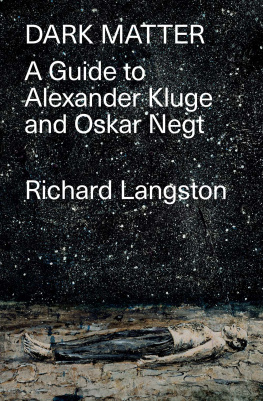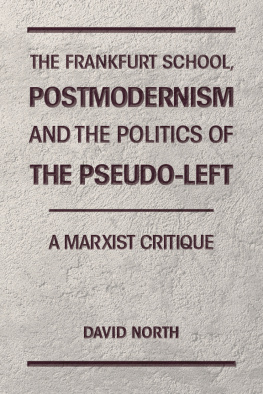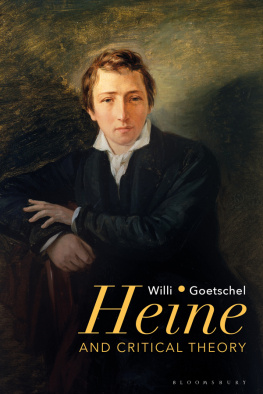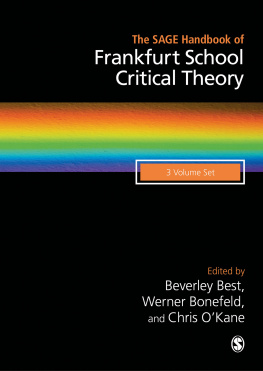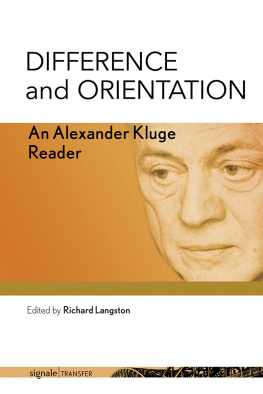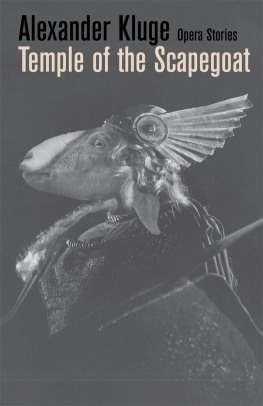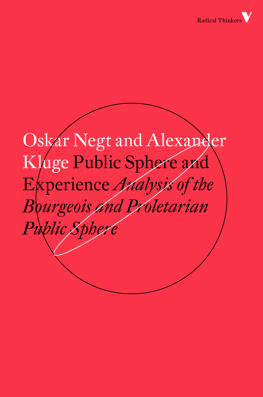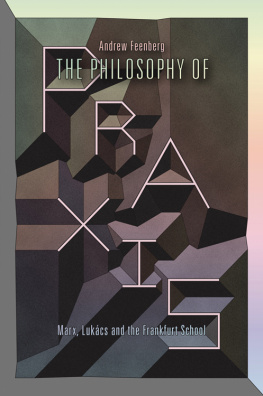Contents

Dark Matter
Dark Matter
A Guide to Alexander Kluge
and Oskar Negt
Richard Langston

First published by Verso 2020
Richard Langston 2020
All rights reserved
The moral rights of the author have been asserted
1 3 5 7 9 10 8 6 4 2
Verso
UK: 6 Meard Street, London W1F 0EG
US: 20 Jay Street, Suite 1010, Brooklyn, NY 11201
versobooks.com
Verso is the imprint of New Left Books
ISBN-13: 978-1-78873-517-9
ISBN-13: 978-1-78873-516-2 (HBK)
ISBN-13: 978-1-78873-518-6 (UK EBK)
ISBN-13: 978-1-78873-519-3 (US EBK)
British Library Cataloguing in Publication Data
A catalogue record for this book is available from the British Library
Library of Congress Cataloging-in-Publication Data
A catalog record for this book is available from the Library of Congress
Typeset in Minion Pro by MJ&N Gavan, Truro, Cornwall
Printed and bound by CPI Group (UK) Ltd, Croydon CR0 4YY
For REL Jr. (19392016)
Contents
Introduction
Chapter 1
Chapter 2
Chapter 3
Chapter 4
Chapter 5
Chapter 6
Chapter 7
Chapter 8
Chapter 9
Dark Matter began with the authors recognition that it would be a long time in the making. Part of its gestation included the authors involvement with the translation of History and Obstinacy, participation in the founding of the Alexander Kluge-Jahrbuch, and the publication of the anthology Difference and Orientation, containing new translations of Alexander Kluges essays on aesthetics and poetics, all of which have allowed for sustained reflection on and deep immersion into the complexities of and interconnections between Alexander Kluges and Oskar Negts works.
Without the support from an array of organizations this book would have never seen the light of day. The research for and writing of the following essays were graciously underwritten, above all, by a stipend from the Alexander von Humboldt Foundation during the 201112 academic years. The College of Arts and Sciences, the Center for European Studies, UNC Global, and the University Research Council, all based at the University of North Carolina at Chapel Hill, also made vital resources available for its completion. The Franklin Humanities Institute at Duke University provided opportunities for dialogue and research necessary for the books early gestation. The publication of Dark Matter was made possible by generous support from the following institutions at the University of North Carolina at Chapel Hill: the Department of Germanic and Slavic Languages and Literatures, the Institute for the Arts and Humanities (Schwab Academic Excellence Award), and the Office of the Vice Chancellor for Research.
Above all, Alexander Kluges and Oskar Negts personal involvement and support at various stages in the research and writing of this book have been sources of indispensable guidance and inspiration for which the author is endlessly grateful.
Special thanks goes to senior editor Sebastian Budgen of Verso Books, who has been an invaluable advocate and supporter of Dark Matter. Copyeditor Brian Baughan also deserves recognition for his meticulous review of the manuscript. The author is endlessly grateful to Anselm Kiefer, whose kind generosity and helpful staff (Eva Knig) made possible the books cover illustration.
As with any massive undertaking, a huge cast of tremendously smart people helped make this book reality. Leslie Adelson, Nora Alter, Barbara Barnak, Claudia Benthien, Frauke Berndt, Rory Bradley, Thomas Combrink, John Davidson, Glsen Dhr, Eric Downing, Devin Fore, Zita Gottschling, Randall Halle, Marita Httepohl, Christian Jger, Stephan Jansen, Lutz Koepnick, Karin Krauthausen, Jakob Krebs, Alice Kuzniar, Richard Lambert, Peter McIsaac, Matthew Miller, Johannes von Moltke, Christopher Pavsek, Inga Pollmann, Tobias Rther, Klaus Sachs-Hombach, Christian Schulte, Cyrus Shahan, Winfried Siebers, Rainer Stollmann, Gabriel Trop, Joseph Vogl, Robert Watson, Beata Wiggen, Emma Woelk, and Guido Zurstiege have made vital contributions both big and small all along the way, for which the author is endlessly grateful.
The seed for this book dates back to an accidental phone call made in the summer of 1999. It was Alexander Kluge who answered. The actual project finally set sail in earnest in 2008. Since then the ideas and arguments within this book incubated at handfuls of conferences held by the German Studies Association, the Society for Cinema and Media Studies, and the Modern Language Association. Lectures held at the Johann Wolfgang Goethe-Universitt Frankfurt am Main, Kings College of London, the Universit de Lige, the Humboldt-Universitt zu Berlin, the University of Waterloo, Bowdoin College, Duke University, Princeton University, Universtitt Tbingen, Universitt Zrich, and the University of North Carolina at Chapel Hill were also valuable opportunities for testing and shaping this books readings and arguments. Earlier bilingual drafts of portions from two chapters of this book have been previously published: a truncated version of .
Of the three principal collaborations by Oskar Negt and Alexander Kluge discussed in the following pages, only two have been translated into English: Public Sphere and Experience and History and Obstinacy. Because the second of these two titles is a significantly truncated edition of the German original prepared in large part by just Kluge, both the original Geschichte und Eigensinn and its English translation are regularly cited throughout Dark Matter. Although History and Obstinacy is attributed first to Kluge and then to Negt in order to reflect the formers lead role, Dark Matter uses both this new and the old attributions depending on whether the German original or the English translation is under discussion. When neither the original nor the translation are in play, Dark Matter defaults to the authors customary attribution, namely Negt and Kluge. When discussed in the context of their publication histories, both the German and English titles are given where appropriate. Citations identify the respective edition addressed but refrain from supplying cross-references to the original or the translation. Not every instance of the English translation can be found in the German, and much of the German is not included in the translation.
Arguably, one of the most important methodological features of the Frankfurt School that Negt and Kluge retain is the primacy of the particular (das Besondere) over the universal (das Allgemeine) and, to this end, Dark Matter has incorporated the particularities of Kluges aesthetic praxis prominently into each of its chapters. This is why the books title lists Kluge first. In almost every case, the considerable pool of available English translations of Kluges work have been used. Conversely, very little of Negts twenty-two-volume collected works is available in English. Translations of German originals were used only in those cases where existing translations fell short or simply did not exist. All in all, Dark Matter has strived to engage both commercially available texts and those available in the public domain that English-language readers can engage themselves without necessarily knowing German.

